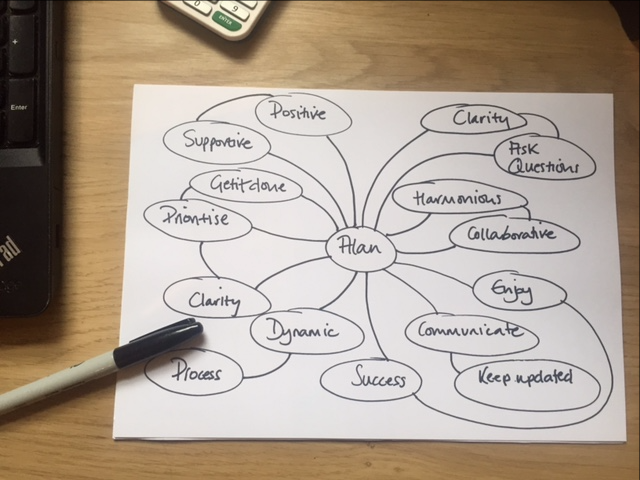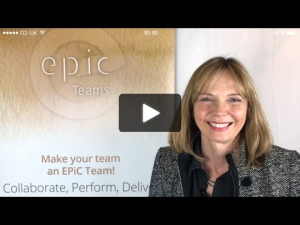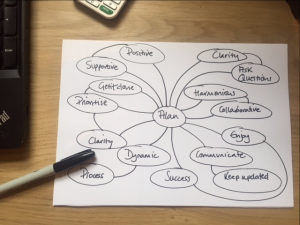

The starting point to owning it or taking personal responsibility begins with the mindset. It’s about making a proactive decision to be responsible for the actions that you take.
In another EPiC Insight (Developing a Feeling of Ease) we touched on the importance of the Hierarchy of Control™. This is required to identify and correct the state of our bodies before we communicate with a sense of personal responsibility.
The Hierarchy of Control™ is:
- PHYSICAL control
- EMOTIONAL control
- Control of FEELINGS
- Control of THOUGHTS
- Control of ACTIONS
Taking personal responsibility begins with a mindset, but very crucially continues with tangible steps that we can take in order that our actions are proactive, specific, and uncluttered.
Today I’m going to talk about emotional control which follows the physical control discussed in an earlier insight.
We talk about the emotional state in 4 layers:
Reading Emotion
Acknowledging Emotion
Understanding Emotion
Managing Emotion
Reading Emotion
It is really important, in order to be able to start controlling emotion, that you first recognise its presence in you and others. It is vital that you are able to acknowledge that the way you respond to a situation differently to how you responded yesterday is driven by a change in emotion or mood, we might say. So if you feel that you are in a type of crazy where everything you do is affected by a negative emotion STOP it right there. Pause, breathe, allow the emotion in and let it pass away. Meditative exercises are useful at the beginning of the day too, to set you up in the right frame of emotion for the day, without any baggage hanging over from previous interactions or experiences.
For others, consider what is driving the intention of the message-giver and disseminate what parts are driven by logic and what parts are driven by emotion. Give the message-giver time to reflect on their own use of language with advanced listening skills.
Acknowledging Emotion
Once you have reached the state of reading emotion so that your emotional antennae is properly tuned, you can more quickly identify it in you and others. It allows you to make decisions, rather than wallowing in the chaos that a lack of control can allow in. In others, for instance, if you’re faced with an aggressive salesperson, rather than reacting in an equally aggressive way, a more emotionally intelligent decision might be to use non-verbal language to indicate that you are not comfortable with the approach and therefore give the other person the opportunity to adapt their own emotional state.
This tactic can work well in personal relationships too as the other person will be finely tuned into body language through their deeper understanding of you.
Understanding Emotion
Students of Emotional Intelligence will quickly become aware that the understanding of you and other’s emotional state is a bit like predicting the weather. It constantly changes and although you can take a fair guess at what emotional state you might be walking into, it has a habit of surprising you. However, with practice, we can prepare more and more accurately by forecasting what sort of emotional situation we are going to be entering by thinking through the situation. This requires a degree of strategy or big picture thinking in order to keep the mind open to the variations that you haven’t quite planned for. Stay nimble, and alert. Particularly, stay present!
Managing Emotion
The key to managing emotion is self-regulation. It’s not easy and we all fall off the wagon, but so long as your intention is to control your reaction, you are more likely that not to achieve a positive outcome. Ultimately this – the positive outcome – is what we are driving at. It is very easy to fall into a temper tantrum if you haven’t applied self-regulation.
Being able to self-regulate your emotion, to communicate in an emotionally intelligent way how you feel, the more smoothly your interaction with people around you will go. Good luck. Give yourself plenty of opportunity to develop this skill and be kind to yourself if it doesn’t work the first, second or third time to try it. It will improve each time.
Now you are ready to move onto the next level – Your Feeling State. More on that in a future article.
To find out more about how to be an EPiC leader, click here to arrange a conversation with one of our Consultants.
Best wishes
The Insights Team




















